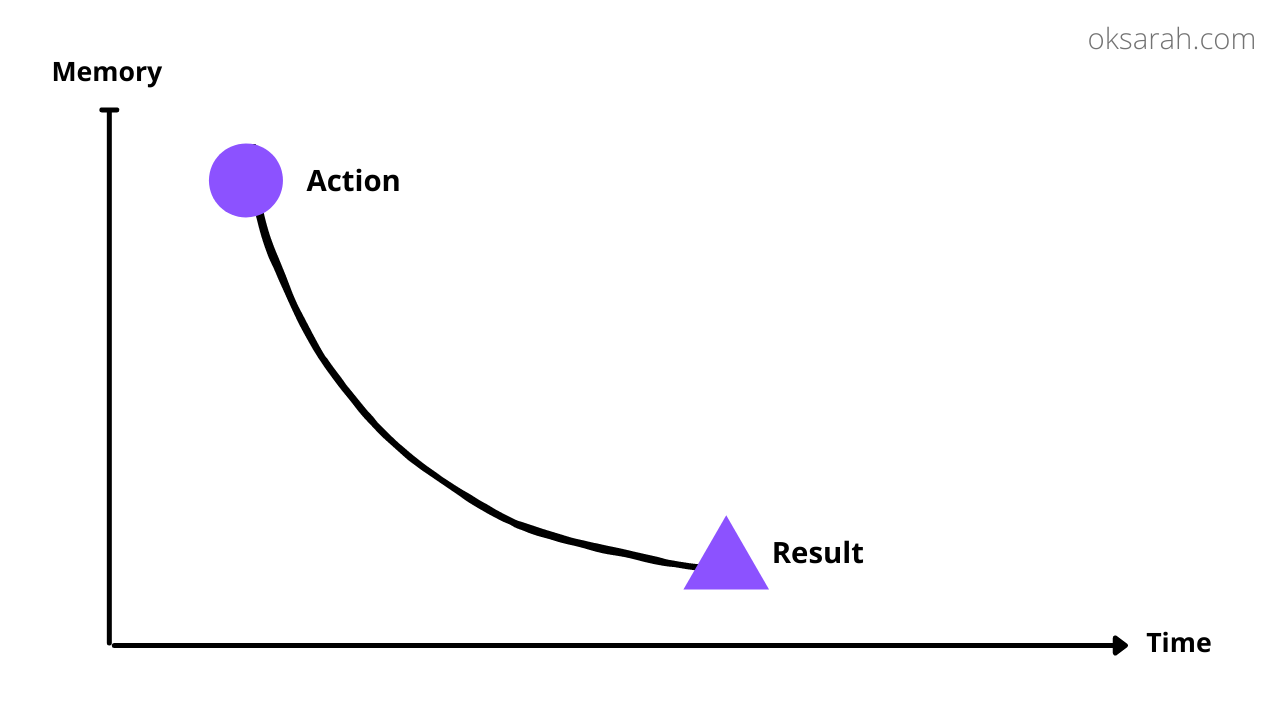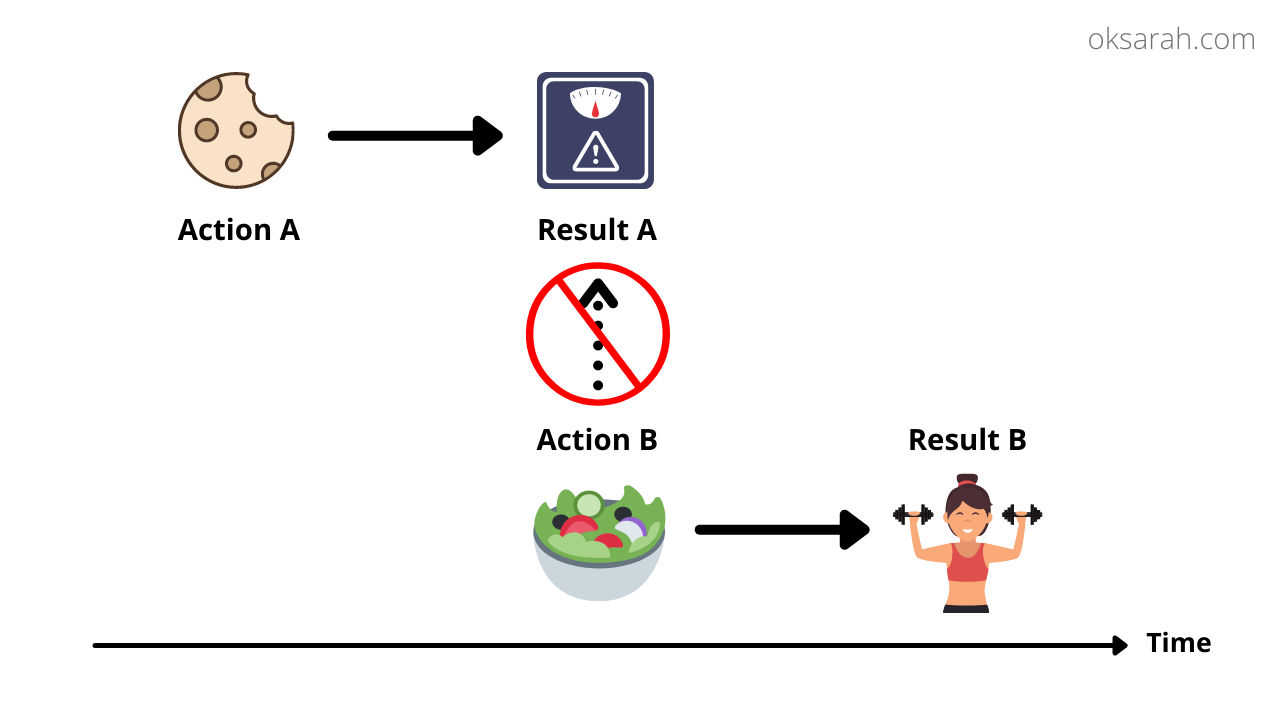The Causes of Our Effects
Drawing faulty conclusions

When building better habits, it's easy to feel discouraged when our efforts don't seem like they're working. Causes are so distant from their effects that it can feels like all our struggles are amounting to nothing. This is because most of us are terrible at diagnosing which actions actually produce results in our lives and when these actions occur.

Our failure to draw accurate conclusions can be explained, in part, by the forgetting curve. Normally the forgetting curve is taught in the context of learning new material for school, but it can also apply to how we remember our lives. This curve illustrates that by the time the consequence of an action comes to fruition, we've forgotten the action that contributed to it. (Of course, a host of confounding factors exist in the space between cause and effect, and one effect doesn't always have just one cause. However, for the sake of argument, let's assume every action produces a corresponding result.)
The human brain is a story-telling machine desperate to make sense of disorder. When something unexpected happens, the brain first scans its freshest memories and immediate surroundings for answers. We tend to look to the recent past to explain the present, but the recent past often tells us the least about the present. When drawing conclusions about the results we see today, the problem isn't that we try to connect cause and effect, but that we draw this connection between the wrong points. Fearing uncertainty, we are apt to rashly attribute outcomes to the wrong actions.
Let me explain with an example:
For the past couple of months, I've been taking my fitness more seriously and have been trying to get in better shape. On some days, I'll eat healthfully, but will be discouraged by how heavy I still feel. I'll think if I'm eating better, why am I not making progress? What's worse is when I even ate healthfully over the past few days and still feel bad.
What I often fail to realize is the fat I'm carrying on my body today isn't from the food I ate today. That hasn't been digested yet. It's probably not even from the food I ate yesterday. Instead, it's from the excess food I ate a week ago, two weeks ago, a month ago, and beyond. It's the compounded result of a bad overeating habit I've been feeding over the past years. Since the consequences of these actions are delayed, I only see the result after I've already forgotten the action that produced it. Attributing my lack of abs to the way I ate today or yesterday is inaccurate.

As depicted in the diagram above, I see result A (no sick pack) and falsely attribute it to action B (eat a salad) because they occurred at roughly the same time. The chronological proximity of these two points makes me think they're correlated. Yet in reality, it's action A (overate dessert) that produced result A (no sick pack). Most consequences take time to unfold. Understanding this delay reminds me that eating well today may not show until weeks or months from now.
When building habits (good or bad), there's a common pattern of delayed outcomes (good or bad). If we want to understand our behavior better, we can train our brains to traverse the timeline of our actions more flexibly. Specifically, it's helpful to look beyond our immediate past for explanations.
Further, this phenomenon marks the importance of consistency over time. I may exercise seven days this week and see no change, but (if I keep exercising) the results from those seven days will catch up to me in a good way a month from now. So when you're starting a new diet, following a new budget, or learning a new language, remember the steps you take today won't show up as results today; the results will come when you've forgotten the steps you took to get them.
